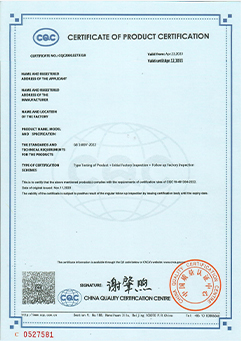Choosing the Right Material for Power Steering Hoses in Your Vehicle
Қаз . 12, 2024 15:57 Back to list
Choosing the Right Material for Power Steering Hoses in Your Vehicle
Understanding Power Steering Hose Material A Key Component of Automotive Systems
Power steering systems play a crucial role in modern vehicles, enhancing maneuverability and providing drivers with a more comfortable driving experience. One of the key components of these systems is the power steering hose, which is responsible for transferring hydraulic fluid from the pump to the steering gear. The material used for power steering hoses significantly influences their performance, durability, and overall effectiveness. In this article, we will explore the various materials used in manufacturing power steering hoses, their unique properties, and the implications for automotive engineering.
Materials Typically Used in Power Steering Hoses
1. Rubber Traditional power steering hoses are predominantly made from synthetic rubber. This material is favored for its flexibility, resilience, and resistance to aging and wear. Synthetic rubber, specifically, offers excellent physical properties that enable it to withstand pressure fluctuations and the harsh environment of an engine compartment. Commonly used types include EPDM (ethylene propylene diene monomer) rubber, which is particularly resistant to heat, ozone, and weathering, making it ideal for automotive applications.
2. Thermoplastic Elastomers (TPE) In recent years, thermoplastic elastomers have emerged as a popular alternative to traditional rubber hoses. TPE combines the properties of rubber with the manufacturability of plastics. This material is lightweight, highly flexible, and exhibits excellent chemical resistance, which is vital for power steering systems exposed to various fluids and chemicals. The ability to mold TPE into complex shapes allows for greater design freedom in hose manufacturing.
3. Polyamide (Nylon) Some power steering hoses are constructed from polyamide, commonly known as nylon. Nylon hoses are noted for their durability and resistance to abrasion and chemicals. The use of nylon can reduce the overall weight of the hose assembly, leading to improvements in vehicle efficiency. However, nylon hoses can be more sensitive to temperature fluctuations and may require additional protective measures to prevent failure.
Impact of Hose Material on Performance
power steering hose material

The choice of material for power steering hoses can significantly affect the performance of the steering system. For example, rubber hoses are generally heavy-duty and capable of withstanding high-pressure conditions, making them reliable for a variety of vehicles. However, under extreme conditions, such as high temperatures or exposure to aggressive fluids, rubber may degrade faster than other materials.
In contrast, thermoplastic elastomers and nylon can provide better resistance to heat and chemicals, thus extending the lifespan of the hose. These materials can also reduce weight, which is a critical factor for performance-oriented vehicles. Lightweight hoses can lead to better fuel efficiency and handling, as they contribute to overall vehicle dynamics.
Challenges and Limitations
While there are numerous advantages to using modern materials, some challenges remain. For instance, manufacturing processes for thermoplastics can be more complex and costly than traditional rubber hoses. Additionally, not all materials are universally suitable for every vehicle model; different automotive designs require specific types of hoses tailored to the unique demands of their steering systems.
Another concern is the risk of compatibility between the hose material and the hydraulic fluid used in the power steering system. If the material is not resistant to the specific fluid, it can lead to hose degradation and system failure. Thus, it is essential for manufacturers to ensure that both the hose material and the hydraulic fluid are compatible to maintain system integrity.
Conclusion
In summary, the choice of power steering hose material is crucial for optimizing vehicle performance and reliability. Traditional rubber hoses remain a staple due to their durability and flexibility. However, innovative materials like thermoplastic elastomers and nylon offer significant advantages in terms of weight, chemical resistance, and lifespan. As automotive technology continues to evolve, the materials used in critical components like power steering hoses will likely advance as well, leading to improved performance and efficiency in vehicles. Choosing the right hose material is not merely a technical decision; it is vital for enhancing driver safety, comfort, and the overall longevity of the vehicle.
